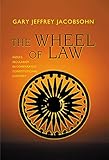The Wheel of Law : India's Secularism in Comparative Constitutional Context / Gary J. Jacobsohn.
Material type: TextPublisher: Princeton, NJ : Princeton University Press, [2009]Copyright date: ©2003Edition: Course BookDescription: 1 online resource (344 p.) : 1 line illus. 1 tableContent type:
TextPublisher: Princeton, NJ : Princeton University Press, [2009]Copyright date: ©2003Edition: Course BookDescription: 1 online resource (344 p.) : 1 line illus. 1 tableContent type: - 9780691122533
- 9781400825578
- 032
- KNS2162.J33 2003eb
- online - DeGruyter
- Issued also in print.
| Item type | Current library | Call number | URL | Status | Notes | Barcode | |
|---|---|---|---|---|---|---|---|
 eBook
eBook
|
Biblioteca "Angelicum" Pont. Univ. S.Tommaso d'Aquino Nuvola online | online - DeGruyter (Browse shelf(Opens below)) | Online access | Not for loan (Accesso limitato) | Accesso per gli utenti autorizzati / Access for authorized users | (dgr)9781400825578 |
Frontmatter -- Contents -- Preface -- Acknowledgments -- Chapter One. Introduction -- Part One. Three Models of Secular Constitutional Design -- Chapter Two. Nations and Constitutions -- Chapter Three. Secularism in Context -- Chapter Four. India: The Ameliorative Aspiration -- Part Two. Constitutional Perspectives on the Challenge to Secularism in India -- Chapter Five. Religion, Politics, and the Failure of Constitutional Machinery -- Chapter Six. Corrupt Practices -- Chapter Seven. Adjudicating Secularism: Political Liberalism or Religious Revivalism? -- Chapter Eight. So You Want a (Constitutional) Revolution? Lessons from Abroad -- Chapter Nine. Conclusion -- Bibliography -- Index
restricted access online access with authorization star
http://purl.org/coar/access_right/c_16ec
How can religious liberty be guaranteed in societies where religion pervades everyday life? In The Wheel of Law, Gary Jacobsohn addresses this dilemma by examining the constitutional development of secularism in India within an unprecedented cross-national framework that includes Israel and the United States. He argues that a country's particular constitutional theory and practice must be understood within its social and political context. The experience of India, where religious life is in profound tension with secular democratic commitment, offers a valuable perspective not only on questions of jurisprudence and political theory arising in countries where religion permeates the fabric of society, but also on the broader task of ensuring religious liberty in constitutional polities. India's social structure is so entwined with religion, Jacobsohn emphasizes, that meaningful social reform presupposes state intervention in the spiritual domain. Hence India's "ameliorative" model of secular constitutionalism, designed to ameliorate the disabling effects of the caste system and other religiously based practices. Jacobsohn contrasts this with the "visionary" secularism of Israel, where the state identifies itself with a particular religion, and with America's "assimilative" secularism. Constitutional globalization is as much a reality as economic globalization, Jacobsohn concludes, and within this phenomenon the place of religion in liberal democracy is among the most vexing challenges confronting us today. A richly textured account of the Indian experience with secularism, developed in a broad comparative framework, this book is for all those seeking ways to respond to this challenge.
Issued also in print.
Mode of access: Internet via World Wide Web.
In English.
Description based on online resource; title from PDF title page (publisher's Web site, viewed 30. Aug 2021)


